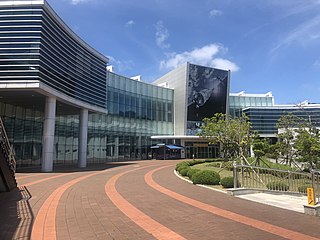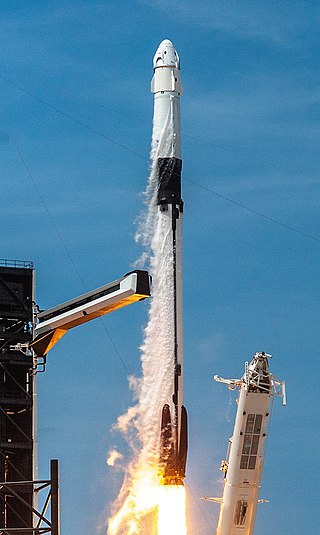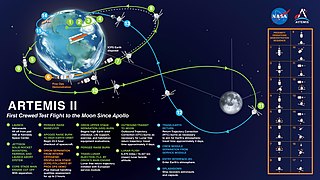Related Research Articles

The Naro Space Center is a South Korean spaceport in South Jeolla's Goheung County, operated by the state-run Korea Aerospace Research Institute.

This is a timeline of first orbital launches by country. While a number of countries, incl. Canada, Australia, Germany, Brazil, Algeria, Kazakhstan, Turkey, Argentina, Italy, Malaysia, Poland, South Africa, the Philippines, Egypt, Spain, Mexico, Thailand and Chile, have built or launched satellites, as of 2022, eleven countries, incl. the United States, Japan, China, India, Iran, Israel, France, the United Kingdom and South Korea, have had the capability to send objects into orbit with their own launch vehicles. Russia and Ukraine inherited the capability of the space launchers and satellites from the Soviet Union, following its dissolution in 1991. Russia launches its rockets from its own and foreign (Kazakh) spaceports.

This comparison of orbital launch systems lists the attributes of all current and future individual rocket configurations designed to reach orbit. A first list contains rockets that are operational or have attempted an orbital flight attempt as of 2024; a second list includes all upcoming rockets. For the simple list of all conventional launcher families, see: Comparison of orbital launchers families. For the list of predominantly solid-fueled orbital launch systems, see: Comparison of solid-fueled orbital launch systems.

Cygnus is an expendable American automated cargo spacecraft designed for International Space Station (ISS) resupply missions. It was initially developed by Orbital Sciences Corporation with financial support from NASA under the Commercial Orbital Transportation Services (COTS) program. To create Cygnus, Orbital paired a pressurized cargo module, largely based on the Multi-Purpose Logistics Module, built by Thales Alenia Space and previously used by the Space Shuttle for ISS resupply, with a service module based on Orbital's GEOStar, a satellite bus. After a successful demonstration flight in 2013, Orbital was chosen to receive a Commercial Resupply Services (CRS) contract. A larger Enhanced Cygnus was introduced in 2015. Orbital Sciences was renamed Orbital ATK in 2015 and Northrop Grumman purchased Orbital in 2018 and has continued to operate Cygnus missions. A further enlarged Mission B Cygnus is expected to be introduced in 2025.

This article compares different orbital launcher families. The article is organized into two tables: the first contains a list of currently active and under-development launcher families, while the second contains a list of retired launcher families.

Gilmour Space Technologies is a venture-funded Australian aerospace company that is developing hybrid-propellant rocket engines and associated technologies to support the deployment of a low-cost launch vehicle.
LandSpace Technology Corporation is a Chinese commercial space launch provider based in Beijing. It was founded in 2015 by Zhang Changwu.

The year 2024 is expected to exceed 2023's 223 orbital launches. So far, the year saw the successful first launch of Vulcan Centaur, Gravity-1, Ariane 6, and notably more developmental launches of SpaceX's Starship. Additionally, the final launch of a Delta family rocket occurred in April with a Delta IV Heavy. In May, China launched the Chang'e 6, the first sample return from the far side of the Moon. The Polaris Dawn mission conducted the first ever commercial spacewalk in September.
Relativity Space Inc. is an American aerospace manufacturing company headquartered in Long Beach, California. Relativity Space is developing manufacturing technologies, launch vehicles, and rocket engines for commercial orbital launch services. The company is notable for manufacturing most of their Terran 1 and Terran R rocket parts using 3D printing. As of April 2024, Terran R is on track for initial launch in 2026.

Starship is a two-stage fully reusable super heavy-lift launch vehicle under development by American aerospace company SpaceX. On April 20, 2023, with the first Integrated Flight Test, Starship became the largest and most powerful vehicle ever to fly. SpaceX has developed Starship with the intention of lowering launch costs using economies of scale. SpaceX aims to achieve this by reusing both rocket stages by "catching" them with the launch tower's systems, increasing payload mass to orbit, increasing launch frequency, mass-manufacturing the rockets and adapting it to a wide range of space missions. Starship is the latest project in SpaceX's reusable launch system development program and plan to colonize Mars.
ViaSat-3 is a planned global constellation of three geostationary Ka-band communications satellites, the first of which was launched in 2023. Operated by Viasat, Inc., the satellites are intended to provide broadband connectivity with speeds of 100-plus megabits per second to homes, business and enterprise internet users, commercial, government and business aircraft, as well as government and defense markets, maritime and oceanic enterprises in the Americas, Europe, the Middle East, Africa and Asia-Pacific.

This article documents expected notable spaceflight events during the year 2026.

Spaceflight in 2025 promises to follow the 2020s trend of record breaking orbital launches and increased developments in lunar, Mars and low-earth orbit exploration.

Equatorial Space Systems PTE LTD. also known as Equatorial Space, is a Singapore-based company that develops hybrid-engine rockets and space launch services. The company was founded by Simon Gwozdz and Praveen Ganapathi Perumal in 2017 in Singapore, with the goal to develop low-cost, safe and eco-friendly space launch vehicles.
The Arnhem Space Centre is a commercial spaceport near Nhulunbuy, in Arnhem Land, Australia. The facility is owned and operated by Equatorial Launch Australia and was the location of NASA's first non-orbital sounding rocket launch from a commercial spaceport outside the United States, which took place on 27 June 2022.

HyImpulse is a German private space launch enterprise headquartered in Neuenstadt am Kocher and developing a small launch vehicle designed around hybrid-propellant rockets. The company is a DLR spinoff founded in 2018 out of the chemical propulsion center of the German space agency's Lampoldshausen facility. HyImpulse is bankrolled by Rudolf Schwarz, chairman of German technology company IABG.
References
- ↑ "Innospace strives to become space platform provider". koreatimes. June 17, 2024.
- ↑ "South Korea's Innospace Plans Seven Rocket Missions In 2025 | Aviation Week Network". aviationweek.com.
- 1 2 Hyeong-woo, Kan. "Innospace launches world's first hybrid rocket". asianews.network.
- ↑ Si-soo, Park (March 21, 2023). "South Korea's Innospace succeeds in test launch".
- ↑ Foust, Jeff (July 2, 2024). "Innospace shares tumble in stock market debut".